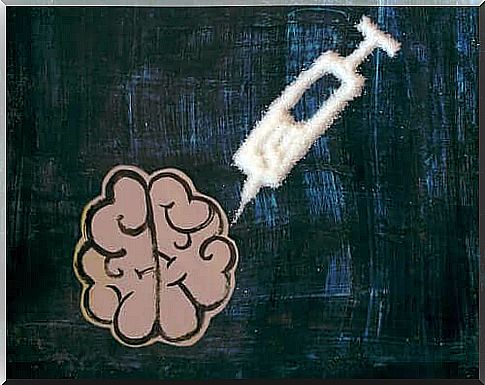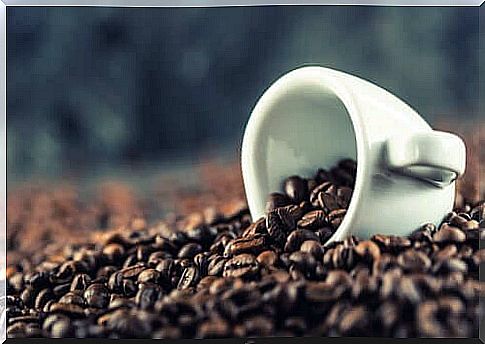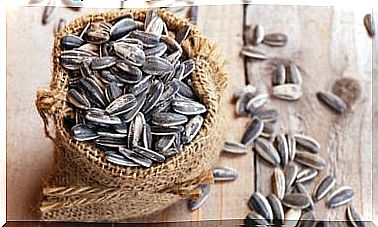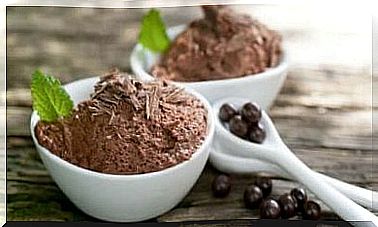Sugar Improves Mental Performance: True Or False?

Until recently, many firmly believed that sugar improves mental performance. However, recent studies have questioned this claim. We know that the body itself already has very effective mechanisms for transporting glucose to the brain, and even completely without having to worry about glucose intake by consuming sugary foods and drinks.
The brain is dependent on the constant transport of glucose into the bloodstream to maintain its proper function. That’s why it has to compete with other organs in our body for glucose when its levels start to drop. If the blood sugar in the body begins to fall, it leads to the following mechanisms:
- First, glucose is extracted from the blood.
- Second, the amount of glucose that other cells in the body receive is limited.
On the other hand, if the amount of glucose in the blood drops due to a lack of exogenous sugar (obtained from outside the body, ie through the diet), the body adopts various mechanisms to obtain this nutrient.
This main mechanism produced by the body is called gluconeogenesis, and with it glucose is made up of proteins and fatty acids. This is an effective mechanism that allows blood glucose levels, ie blood sugar, to be maintained under fasting conditions and in situations where, for one reason or another, the body does not continuously receive carbohydrates.

Ingestion of sugar and memory
There are studies that have linked sugar intake to improving short-term memory function. These studies usually consist of ingestion of a sugary drink, and the results have shown that intense tasks that require mental performance respond well to glucose dosing.
Until very recently, experts have defended the fact that the brain functions optimally when the amount of glucose circulating in the blood is around 25 grams. This amount of glucose corresponds to about the amount of sugar contained in one banana. However, recent studies have found that people with better glucose tolerance also have better memory.
This situation is necessary, for example, for people with diabetes, because in their case the body develops insulin resistance, which means that the body is no longer able to control blood sugar levels normally. Therefore, the organism itself has very efficient mechanisms at its disposal that are able to produce glucose from proteins and fatty acids and thus also keep blood sugar at normal levels. In this way, glucose can be delivered to the brain in an appropriate way, which also ensures adequate cognitive performance.
On the other hand, it is also clear that proper hydration plays an important role in mental performance and cognitive skills. In this way, for example, a person with mild dehydration may experience decreased performance in terms of memory, concentration, and alertness.
Is refined sugar more unhealthy than complex carbohydrates?
Some articles argue that the intake of refined sugar results in the short term in the loss of memory after a blood glucose value measured a few hours after a meal. In addition, consumption of refined sugar has been associated with other signs of mental performance, such as cognitive impairment. Consumption of high-sugar and sugary foods and beverages has also been linked to the development of a number of different diseases, such as diabetes, obesity, and cardiovascular disease.
On the other hand , the incidence of activity and alertness disorder, or ADHD, is also higher in adolescents whose diets are high in saturated fats and refined sugars, while adolescents who follow a healthier diet have a significantly lower risk of this disorder.
Foods that increase brain performance
While simple sugar can negatively affect our cognitive functions, we have a lot of other nutrients in our hands that in turn can improve brain function and our mental performance. An example of these foods that improve brain function is caffeine, which acts as a natural stimulant and helps both improve and maintain brain health and performance.

Nitrites found in foods such as beets are known to increase vasodilation and thus also promote blood flow to the brain. The main consequence of this effect is logically an increase in the proportion of nutrients specifically at the level of the brain, which in turn leads to an increase in mental performance and cognitive skills.
In addition, some vitamins, such as vitamin C, can have positive effects on mental performance and brain health. Indeed, high vitamin C intake, and with it the stimulation of brain performance, helps prevent the cognitive impairment that occurs, especially in people with Alzheimer’s disease.
Sugar improves mental performance: true or false?
We know that glucose is extremely important for brain function, their main fuel. However, consuming this nutrient in the form of food or drink is not necessary to ensure proper brain function. It is good to understand, therefore, that our bodies have very effective mechanisms in place to help produce enough glucose while ensuring that brain function remains at an appropriate level.
In other words, the effects of excessive sugar are detrimental to our health. Indeed, several studies have shown that excessive sugar intake is clearly associated with both cognitive impairment and the onset of many diseases. Therefore, in order to improve brain performance, it would be appropriate to consume substances that specifically stimulate brain function and blood circulation, such as foods and beverages containing caffeine and nitrites.
So does sugar improve our mental performance? The answer is simple: not a cure, but on the contrary, a high intake of sugar impairs our brain function and can also lead to many complications that endanger our health.









